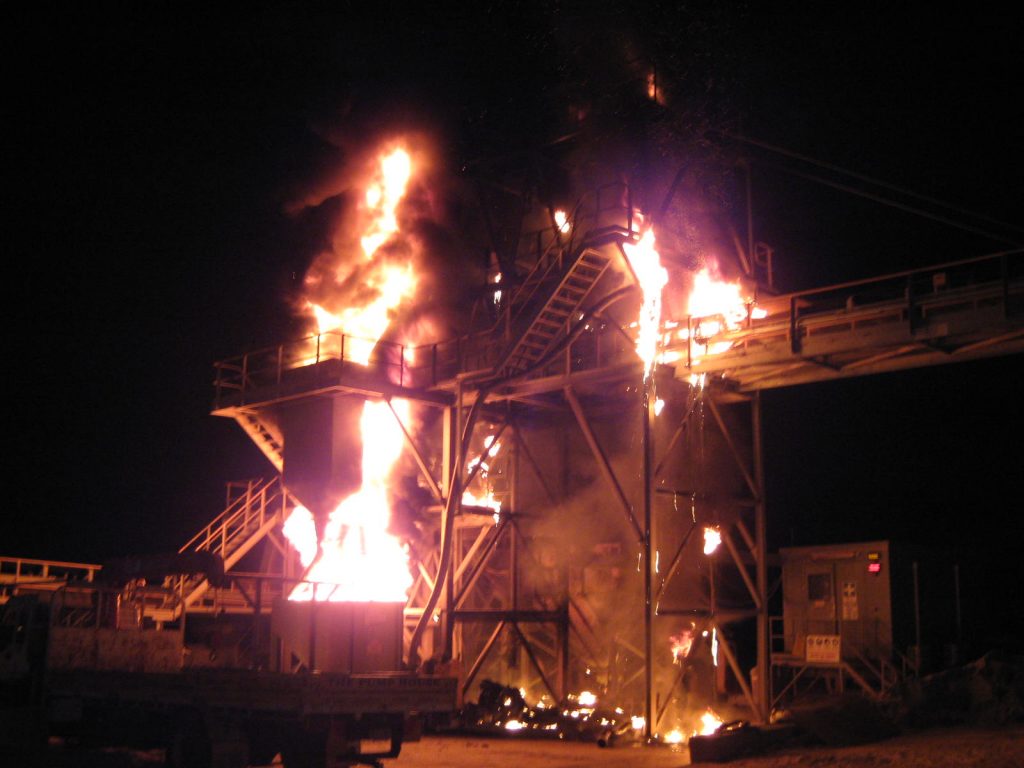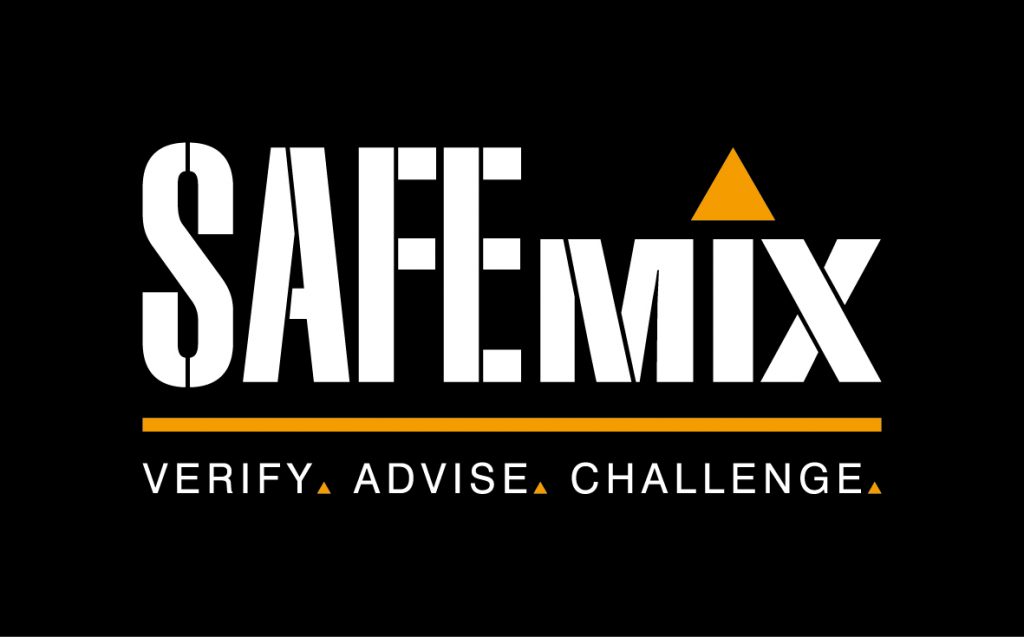Hot Works and Panel Penetration Works
Permit To Work (PTW) Requirements.
Hot Works
Hot Works are activities that involve the introduction of a flame or spark and have the potential to cause a fire if that flame or spark combines with fuel and oxygen. Tasks such as welding, gas cutting and grinding are deemed to be Hot Work.
Hot works are conducted both in a controlled environment such as a designated Hot Works workshop or the actual plant where exposure to combustible materials such as screen cloths and conveyor belts is prevalent.
If a fire within the processing plant is immediately controlled and extinguished, the consequence may not be that significant.
Alternately if the combusting materials have not been identified, the consequences can be extreme, and are inclusive of personal injuries to quarry workers or emergency service personnel, property damage or destruction, business disruption, increase in insurance premiums, regulatory intervention and general repair and or replacement of plant and equipment.
Panel Penetration Works
Insulated Sandwich Panels and Composite Panels are two of several terms used to describe a range of prefabricated, insulated building materials with two metals skins bonded to an inner insulated core. Many portable buildings used in quarries would likely be manufactured using these panels on both interior and exterior surfaces. Some are classified as combustible
whereas others can be classified as non-combustible.
Any penetrable work that could generate heat or sparks may result in the ignition of these panels. This includes work such as cutting, grinding, punching, welding, and installation of electrical fittings.
Ignition of core materials could result in significant fire within the building as panel fires can be difficult to extinguish and readily propagate the fire while releasing toxic hazardous gases. Once a fire takes hold, the panels are at risk of delamination, spilling molten plastic which further transfers and propagates the fire. Sprinkler systems are reported to be a lot less effective on panel fires than other fires.
Panel manufactures have recently moved toward a noncombustible/fire retardant core but older panels are likely to contain combustible materials without fire retardant within the core.
Asset Insurance
Some CMPA members have recently been requested by their insurer or broker to not only have a Permit to Work (PTW) system established for Hot Works external to the designated Hot Works area, but a PTW system established for all Panel Penetration Works.
If you are considering modification involving Panel Penetration Works to any building that contains panels, in particular, if you are not aware of the panel fire rating it may be diligent to contact your insurer or broker so as to fully understand the limits and conditions of your policy.
Permit to Works
Several high risk activities such as Hot Works, Panel Penetration Works, Excavation & Trenching, Confined Space Entry and Working at Heights are generally controlled through the issue of a PTW granted by a competent and responsible person who can check all required controls are in place before, during and after the works.
All workers who undertake the work must be clearly instructed in the PTW requirements and how to implement them and acknowledge in writing their commitment to the PTW requirements.
Please note that a PTW for Confined Space Entry is a legislative requirement under the OHS Regulations 2017 and a PTW for certain types of excavation work is a legislative requirement under Building Regulations 2006. This excavation work does not include extraction work in a quarry but may be a requirement for construction work in a quarry or concrete plant.
The CMPA has for several years included a PTW template for Hot Works amongst the publications made available to members.
The PTW has recently been reviewed and amended to include a more comprehensive range of potential controls that can be utilised as per site specific requirements.
A PTW for Panel Penetration Works has also been established and is available to members.
Both PTWs focus on preventative controls but also on post work controls such as a fire watch for Hot Works and evidence of smoke or hot panel surfaces for Panel Penetration Works.
Written by David McKelvie, Director of Safe Mix, a WHSconsultancy that specialises is supporting the Construction Materials Industry.
If you require WHS support, contact David on 0407 022 117 or
email [email protected]
Alternately visit our website www.safemix.com.au











You must be logged in to post a comment Login